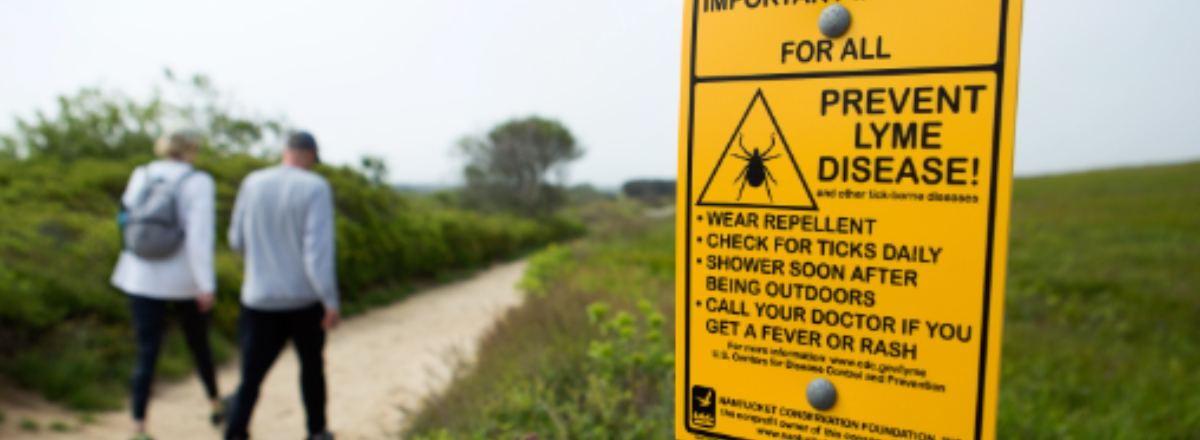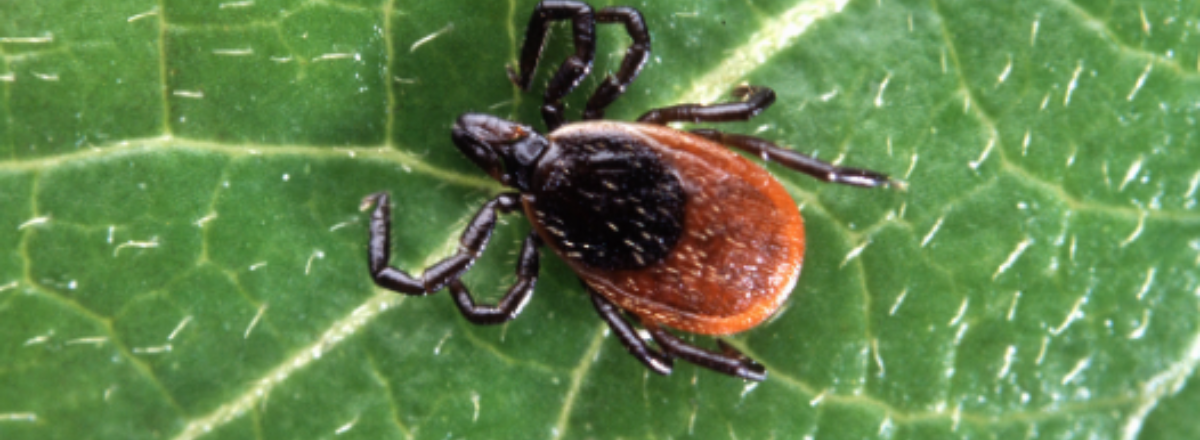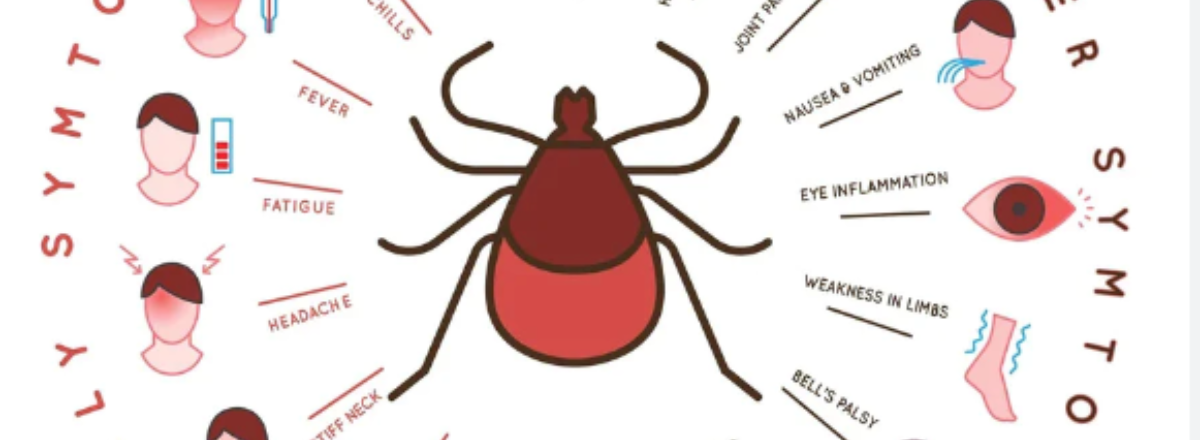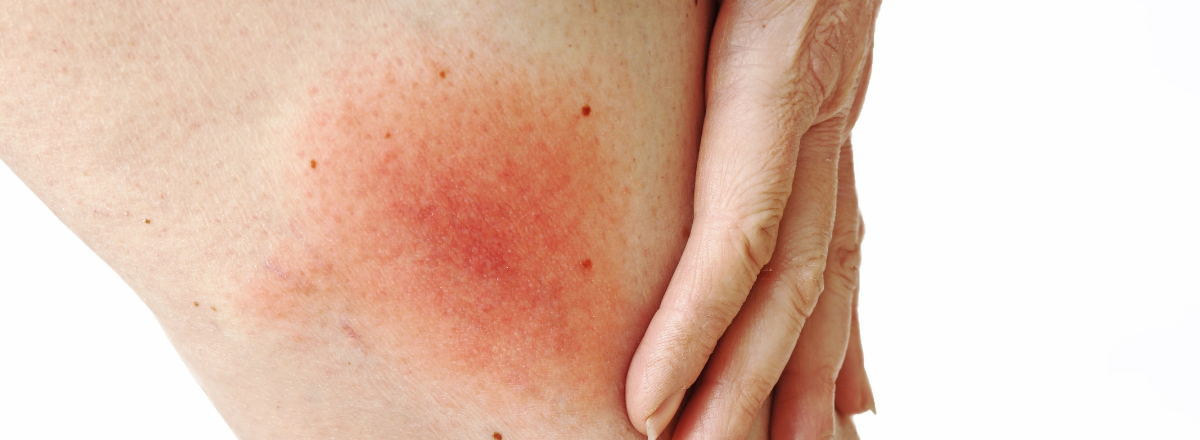WIth the summer months here at last, who isn’t tempted to head outdoors into the fresh air? But health experts are urging walkers, ramblers and anyone who ventures out into the countryside to ‘stay safe’ and be aware of ticks – tiny creatures that can spread a bacterial infection called Lyme disease.
Public Health England (PHE) estimates ‘there are 3,000 to 4,000 new cases (of Lyme disease) each year’ mostly over the summer, possibly more due to it being a difficult disease to diagnose sometimes. The National Institute for Health and Care Excellence (NICE) states that the ‘true number of cases is currently unknown’. But with numbers expected to rise once again this year, being tick aware is crucial – ‘not just to help you reduce the risk of getting Lyme disease, but also to know what to do if you’re bitten by a tick,’ says Dr Kenny.
Here’s how you can ‘stay safe’ and avoid what can be an unpleasant and debilitating illness.
What exactly is Lyme disease?
‘Lyme disease is spread by infected ticks carrying a bacterium called Borrelia burgdorferi,’ says ZoomDoc’s Chief Medical officer and GP, Dr Kenny Livingstone.
Celebrities including Justin Bieber, Avril Lavigne, Bella Hadid and Shania Twain have all contracted Lyme disease and spoken about the debilitating effects of their illness.
‘Although it’s treatable, it can be easily missed or misdiagnosed – especially if you’re unaware you’ve been bitten by a tick,’ he says.
Ticks can be as tiny as a poppy seed (although they can be bigger and more visible). They live in long grass or woodland vegetation right across the UK and attach themselves to clothing or skin as you brush past. They spread Lyme disease bacteria by biting you – something you may not even notice or feel, which is why so many cases go unnoticed and untreated.
That’s why PHE and organisations like Lyme Disease UK are raising awareness of the signs, symptoms and how to prevent getting bitten in the first place as part of Lyme Disease Awareness month (May).
What are the signs and symptoms to look out for?
The first thing you may notice is a specific rash that breaks out where you’ve been bitten by a tick. Dr Kenny describes this as a ‘bull’s-eye rash’ – identifiable for its red centre and a red circle that forms around it. The edges may feel slightly raised and it may grow in size, too.
‘If you notice this kind of a rash, even if you don’t remember being bitten, make a GP appointment as soon as possible as you’ll need to be prescribed a course of antibiotics. ZoomDoc can help recognise this unusual rash over the phone, so to speed things up download our app and book to see one of our GPs at a time to suit you,’ he says.
Although the bull’s-eye rash is a visible sign you’ve been bitten by an infected tick, not everyone will notice it or have it.
Other early symptoms of Lyme disease can include:
- flu-like symptoms such as fever and sweats, chills, fatigue, neck pain or stiffness, headaches, joint or muscle pains
- paralysis of the facial muscles, typically only on one side of the face (Bell’s palsy)
- nerve pains, which may be shooting, sharp or prickly and which follow the course of the nerve.
If you’re suffering from any of these and have spent a long time outdoors or suspect you were bitten by a tick, see your GP.
If left untreated or undiagnosed, Lyme disease can cause more serious symptoms such as:
- pain and swelling in the joints (inflammatory arthritis)
- problems affecting the nervous system, such as numbness and pain in your limbs, paralysis of your facial muscles, memory problems and difficulty concentrating
- inflammation of the membranes surrounding the brain and spinal cord (meningitis) which can cause a severe headache, a stiff neck and increased sensitivity to light
‘It can also go on to cause vision problems and heart problems, such as inflammation of the heart muscle (myocarditis) and even heart failure – although these are quite rare,’ says Dr Kenny.
Treatment for Lyme disease
Current advice says to ‘contact your GP or dial NHS 111 promptly if you feel unwell with any of the symptoms described above after being bitten by a tick or after spending time in areas where ticks may live.’
If you have the distinctive rash your GP should start you on antibiotics straight away. If there is no rash, they may arrange for a blood test to diagnose Lyme Disease.
‘If the blood test comes back negative and you still feel unwell, you may need a second blood test as the antibodies can take time to reach levels that can be detected by the blood test,’ says Dr Kenny.
How to prevent Lyme disease

To prevent Lyme disease use insect repellent, remove ticks promptly, apply pesticides, and reduce tick habitat.
The best way to avoid getting bitten by ticks when you’re heading outdoors is to wear long-sleeve clothes and trousers, rather than shorts. Tuck loose trousers into your socks and stick to pathways, if you can.
Of course, not all ticks are infected, so will do no harm at all. But if you are bitten and can see it, you should remove it quickly and carefully.
Here’s what to do:
- use a pair of fine-tipped tweezers, or a tick removal tool
- grasp the tick as close to the skin as possible
- pull upwards slowly and firmly, as mouthparts left in the skin can cause local irritation
- clean the bite area and monitor for several weeks for any changes.
‘It’s normal for the area to look red once you’ve removed the tick but if it doesn’t fade after a few days or begins to spread outwards – or you have any flu-like symptoms, see your GP as soon as possible. Be sure to tell them you were bitten by a tick to get it treated appropriately and quickly,’ says Dr Kenny.



